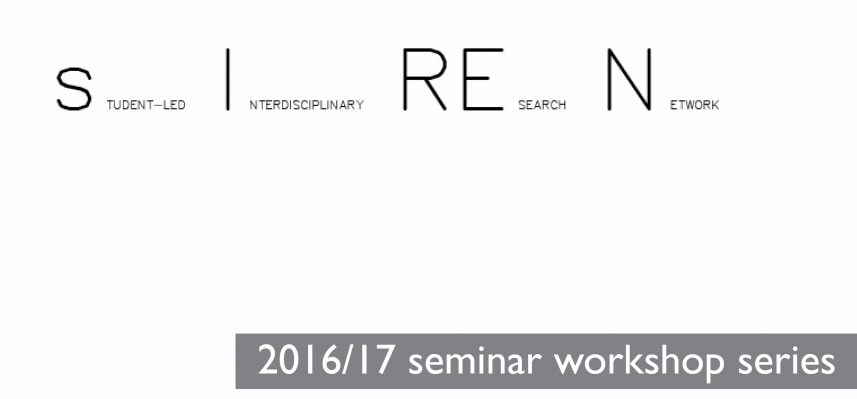Last month, I attended a seminar on interdisciplinary research projects at the University of Edinburgh. The seminar, Designing Interdisciplinary Research Projects, was the first in a series of six interdisciplinary themed seminars being organised by sIREN (student-led Interdisciplinary Research Network).
There were four talks during the half-day event, covering various aspects and attitudes towards interdisciplinary research. The first of these was given by Professor Richard Coyne, who spoke about the “reckless researcher” and the idea that there can be challenges to interdisciplinary work, including levels of credibility across several domains and an over-broadening of research themes and focus.
The second speaker, Professor Ewan Klein, talked about the “X-T-C of data”. Here, he presented the idea that there are many unknowns (X) when working in a cross(x)-disciplinary manner and cross(x)ing information forms such as words, tables, and figures. The T represents the challenge of finding both breadth and depth in an interdisciplinary project – which can be especially challenging if you are trying to cross disciplines without a well-formed research team. The C then represent the culture of communication in interdisciplinary work with three stages: (1) not understanding, (2) kind of understanding, and (3) realising that what you thought you understood was wrong and that you don’t actually understand.
Professor John Lee then spoke about “Pervasive Interdisciplinarity”, asking the question “why should we be interdisciplinary?” His reply was simple: “Why not?” Lee argued that the idea of different disciplines is merely an illusion with overlapping and blurring edges everywhere. He also suggested that we might be more at risk if we try to overly distance ourselves from other disciplines. However, he did recognise (quite rightly, for the audience) that this might be a difficult hurdle for those working on a PhD, as finding the appropriate supervision team (and later, PhD examiners) might make some cross-overs improbable.
The final talk of the day was given by Dr Stefan Bilbao, who shared a real-life interdisciplinary scenario by speaking about The NESS Project. Dr Bilbao urged the audience to remember that the differences in both the training and administration practices can be quite different between disciplines, creating challenges along the way. He also spoke of the dangers of “discipline hopping” and how a lack of singular focus could mean risking a shallow understanding of the field. However, he acknowledged a potential payoff through the potential for gaining new knowledge based on merged disciplines.
I found all the talks interesting, as my PhD relies on a wide range of disciplines to create a (rather loose) theoretical framework. And though my PhD itself isn’t interdisciplinary, I can really appreciate the challenges and dangers of an interdisciplinary project. In fact, my research project has been long-designed (and all my data collected and coded!) so the seminar will not have impacted that part of my PhD. However, as I enter the vital part of actually writing up my thesis, I feel it is beneficial for me to have conversations with others about the pros and cons of interdisciplinary projects as this may play a role when I discuss the next steps of my research in my thesis.
The seminar was also a great way for me to start thinking more about my post-doctoral career, as my future may include a lot of interdisciplinary work. And with my pre-PhD work all being done outside of the Information Science discipline – both professionally and academically – I am already well-versed in bringing non-IS views to the discipline.
There are five more seminars in the series. The next instalment is “Challenges and limitations of existing research methodology: Inventing new methods of interdisciplinary research” on 7 December 2016. I am especially looking forward to this one as I am keen to shake things up a bit with fun and quirky research methods in my post-doctoral life. (My PhD is already branching out in a small way from standard Information Science methods.)
